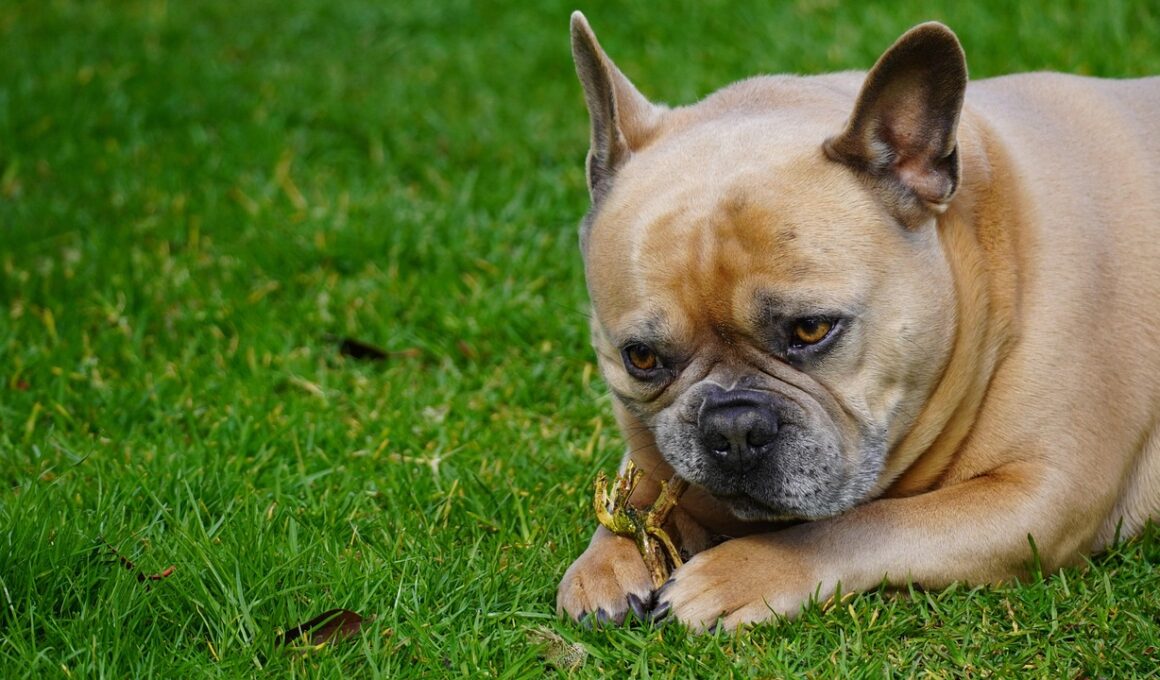Dental Care Tips for Maintaining Hypoallergenic Dogs’ Health
Maintaining proper dental hygiene for hypoallergenic dogs is essential for their overall health and well-being. Dental diseases can lead to considerable pain and discomfort in pets, which is why ensuring regular oral care is crucial. Start by introducing your dog to dental care at an early age, which may lead to better acceptance of brushing and dental routines. Choose high-quality dental products specifically designed for dogs, as they have unique formulas that cater to canine dental needs. Consider using dental chews, which can aid in reducing plaque and tartar buildup during chewing. Also, make use of a soft-bristled toothbrush designed for dogs, and dental gel that is safe for pets. Establish a routine whereby you brush your dog’s teeth at least two to three times a week, gradually increasing frequency as they become more accustomed to the process. Additionally, keep an eye on their diet since certain foods can contribute to oral health, whilst others can help maintain their teeth and gums. Regular veterinary check-ups will also help you monitor their dental health effectively.
Regular dental check-ups are pivotal in maintaining the dental health of hypoallergenic dogs. It’s essential to schedule biannual professional cleanings with your veterinarian, as they can thoroughly examine your pet’s teeth and gums. During these visits, any signs of gum disease or other issues can be identified early, significantly improving your dog’s health outcome. Your veterinarian may recommend specific dental treatments if significant plaque and tartar buildup is detected. Additionally, they might provide advice on at-home dental care products that work best for your dog’s specific breed and health condition. Owners should also be aware that some hypoallergenic breeds might have a predisposition to dental problems, making routine care even more critical. Besides cleaning, veterinarians may also suggest professional-grade sealants to protect your dog’s teeth from decay. These preventive measures help in extending the life of your dog’s teeth and ensuring their comfort. Following these recommendations will not only promote better dental health but can also enhance your dog’s overall quality of life, keeping them happy and healthy in the long run.
Implementing an At-Home Dental Care Routine
Implementing an effective at-home dental care routine is crucial for the long-term dental health of hypoallergenic dogs. Start by acclimating your dog to having their mouth handled; this will make the actual brushing process smoother. Use a small amount of pet-safe toothpaste on your toothbrush, encouraging your dog with treats and praise during the process. Brush in circular motions, focusing on the gum line where plaque accumulation is prevalent. Additionally, offering dental toys can help reduce tartar buildup and keep your dog entertained. Regularly check your dog’s breath; bad breath can be an indication of dental problems or an underlying health issue. Incorporating water additives designed for dogs can help maintain oral hygiene proactively by reducing plaque and tartar formation. Monitoring your dog’s eating habits is also essential, as some hard kibble types can contribute positively to dental health while softer foods may hinder the cleaning process. Finally, ensure that your dog has a variety of chew toys to keep their teeth clean and help prevent dental disease.
Recognizing the signs of dental issues is a vital part of ensuring your hypoallergenic dog’s dental health. Symptoms such as swollen gums, excessive drooling, difficulty chewing, or bad breath should never be ignored. It’s crucial to pay attention to any changes in behavior, as discomfort from dental problems can manifest in various ways. If your dog shows reluctance to eat or plays with their toys differently, it may indicate underlying dental pain. Regularly inspecting your dog’s mouth yourself is advisable, looking for any abnormalities or signs of plaque buildup. When you notice any concerning symptoms, schedule an appointment with your veterinarian for a thorough assessment. Early intervention can prevent more serious dental diseases from developing, including periodontal disease. Keeping an eye on not just dental health but your dog’s general well-being is essential. Dogs cannot articulate their discomfort, so being proactive in spotting problems and understanding your dog’s needs will contribute significantly to their health outcomes. This vigilance will help maintain your dog’s happiness and overall quality of life.
The Role of Diet in Dental Health
Diet plays a pivotal role in the dental health of hypoallergenic dogs, influencing both the cleanliness of their teeth and the condition of their gums. Choosing high-quality dog food that promotes oral health is crucial; look for kibble designed to reduce plaque and tartar buildup. Higher-quality commercial dog foods often contain essential ingredients that support dental health. Additionally, consider incorporating dental treats that are formulated to reduce plaque and freshen breath. Some human-safe vegetables, such as carrots, can also aid in cleaning teeth naturally while offering nutritional value. If your dog is primarily fed wet food, it may contribute to plaque buildup, making a switch to dry kibble beneficial. Always consult your veterinarian before making significant dietary changes to identify what will work best for your hypoallergenic dog. Limiting human food and ensuring a balanced diet will also contribute positively to dental health. Remember, keeping your dog hydrated is equally important as hydration impacts their overall dental hygiene and prevents the formation of bad breath.
Another essential aspect of dental care for hypoallergenic dogs is understanding the significance of water in their daily routine. Providing fresh and clean water daily helps maintain hydration, supporting overall health, including dental hygiene. Consider using water bowls that are cleaned regularly to prevent bacteria buildup. Additionally, you might explore pet water fountains that encourage drinking and keep the water fresh. Staying hydrated helps produce saliva, a natural cleanser for the mouth that mitigates the growth of harmful bacteria. Saliva plays an important role in washing away food particles and neutralizing harmful acids produced by plaque. Furthermore, you can add dental water additives specifically designed to combat plaque buildup and improve oral health. Consider consulting with your veterinarian about the best options available that would suit your dog’s needs. Being proactive in your dog’s hydration contributes not only to their dental health but also to their overall physical well-being. Staying organized with your dog’s hydration and utilizing dental care options can drastically improve their quality of life and support their ongoing health journey.
Conclusion and Final Recommendations
In conclusion, maintaining your hypoallergenic dog’s dental health requires a multifaceted approach involving regular brushing, proper diet, and veterinary check-ups. Make dental care an integral part of your dog’s grooming routine starting from an early age, so that they grow accustomed to the processes involved. Pay attention to their dietary habits, and choose high-quality foods and dental treats that promote oral hygiene. Routine veterinary visits are crucial to catch any developing problems and implement preventive treatments. Always observe your dog’s behavior, as changes can indicate potential dental issues. Remember to mix fun dental chew toys and incorporate water additives into their care routine. It’s beneficial to educate yourself further on maintaining oral health and developing a strong bond of trust and comfort with your pet during care procedures. Making these concerted efforts will ultimately lead to a longer and healthier life for your hypoallergenic dog, allowing them to thrive comfortably in their home environment. By investing time and effort in their dental care, you ensure their happiness, well-being, and overall quality of life, which is invaluable for any pet owner.
While maintaining the dental care of hypoallergenic dogs can be a challenge, dedication towards their health will reap many rewards. Regularly scheduled vet visits coupled with a comprehensive at-home dental routine proves effective. The right mix of diet, hydration, product selection, and attention to changes in your dog’s behavior can facilitate better dental health every day. Consider it an investment into their quality of life. By engaging them in activities like dental chewing and ensuring regular brushing, you align with their natural behaviors while promoting better health outcomes. Remember, communication with your vet is essential in creating a tailored dental care plan best suited for your dog’s unique needs. As you prioritize their dental well-being as part of their overall health management, you may find peace of mind knowing you’ve taken the correct steps for your loved one’s care and happiness. They’re not just pets; they’re family members deserving of the best possible care you can provide. Combating dental disease early on is a much more manageable task than addressing advanced dental health issues. Thus practicing good dental hygiene is a valuable habit for every pet owner with a hypoallergenic dog.


